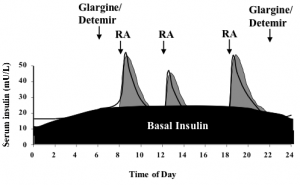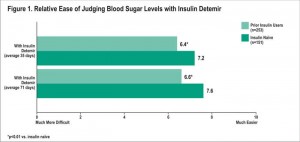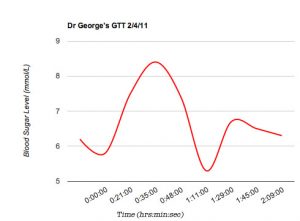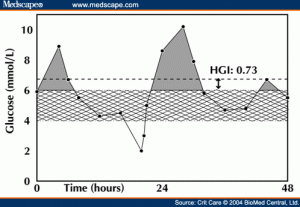What is a Normal Blood Sugar Level?

Though in many cases the so called normal range for blood glucose is between 60 and 120 this can vary for any number of reasons and it can be a challenge to ascertain what is a normal blood sugar level is for each individual. Glucose, which is the primary source of energy for the body’s cells, is also quite toxic at high levels and when levels are too low the body shuts down due to lack of energy.
What is a normal blood sugar level can be an extremely tricky animal to track down due to the fact that many different factors, like age, weight, underlying health conditions and even types of food eaten can cause what would be a normal blood glucose level to be wildly incorrect for the next person.
Diabetics live by knowing what is a normal blood sugar level, and keep careful records, often checking blood glucose many times per day with a device called a glucometer. A glucometer is a small device which, with the help of a specially designed test strip, is given a drop of blood. The glucometer then measures the amount of glucose in the blood. The glucometer is an invaluable asset to those suffering from diabetes or any of the associated metabolic disorders as it allows them to track and trend their blood glucose level and maintain as much as possible an acceptable blood glucose level.
If you or someone you know is a diabetic, or simply feels the need to maintain a certain blood glucose level, there are no hard and fast rules as to what is a normal blood sugar level. The only way to be sure what is normal for you is to visit your doctor and get his or her advice on what should be “normal’ for you with consideration to any other conditions that you may have.




